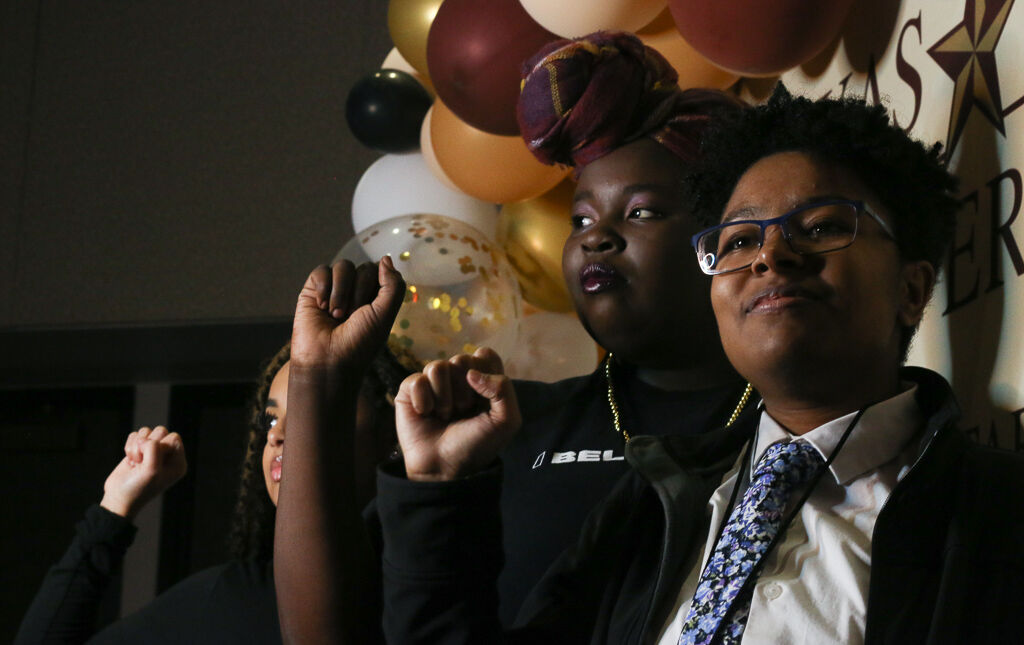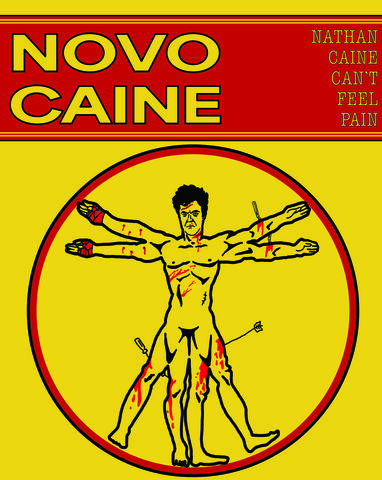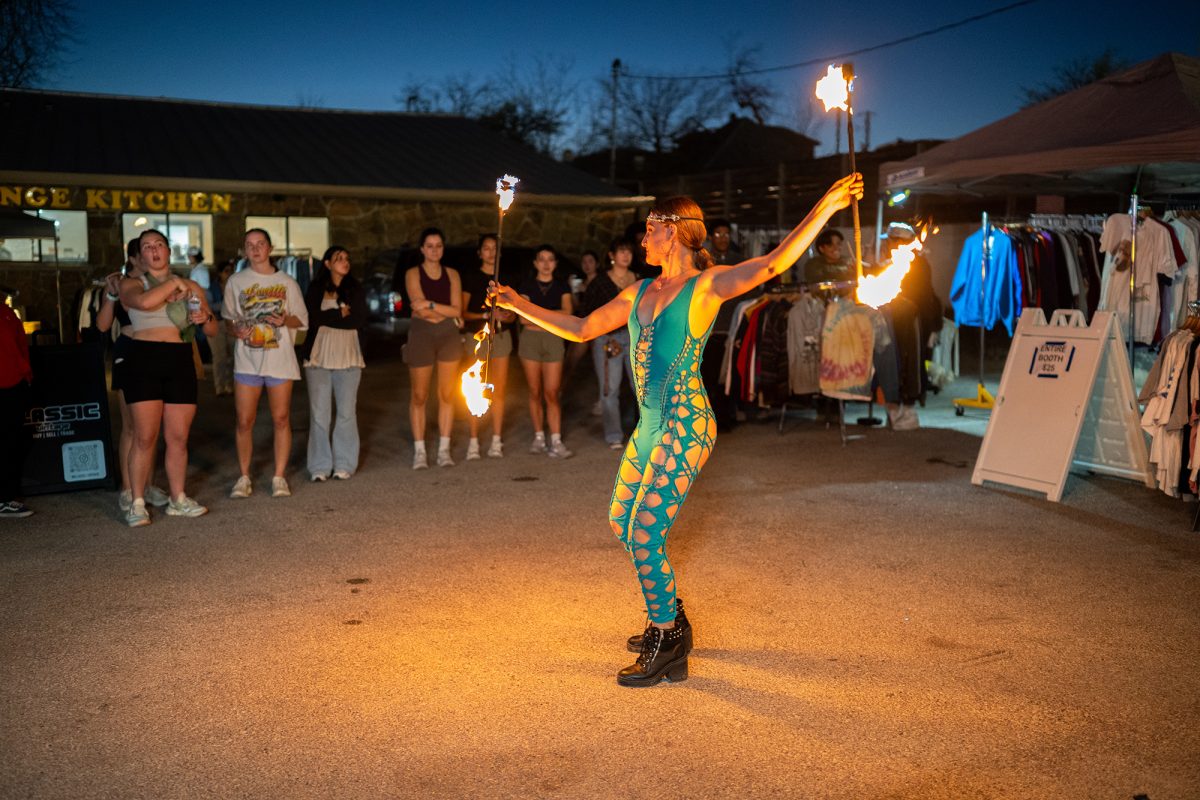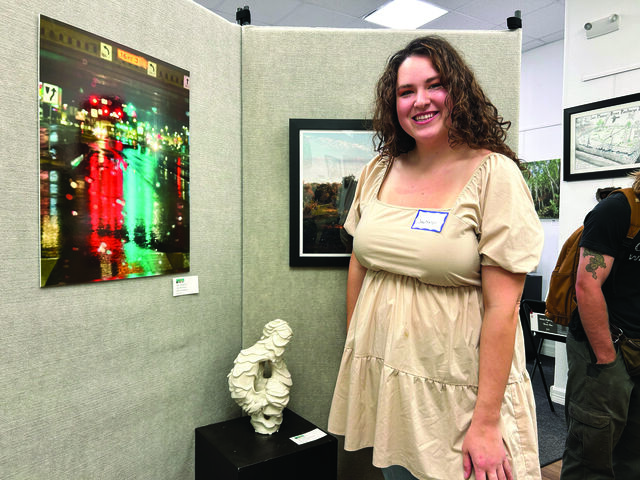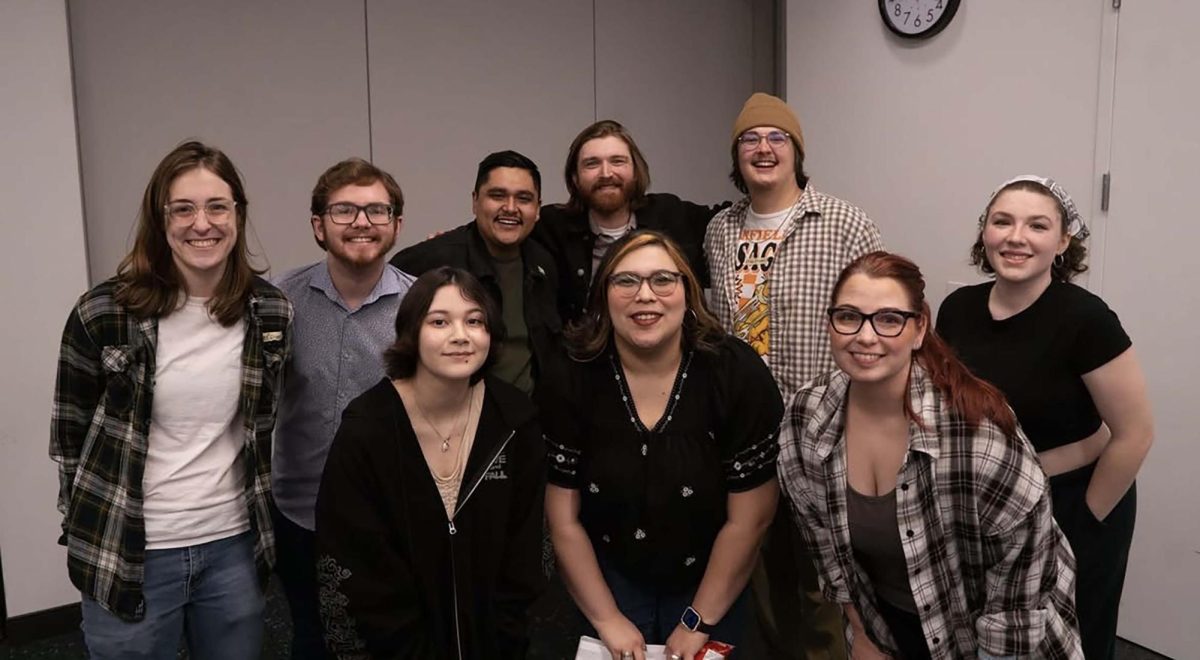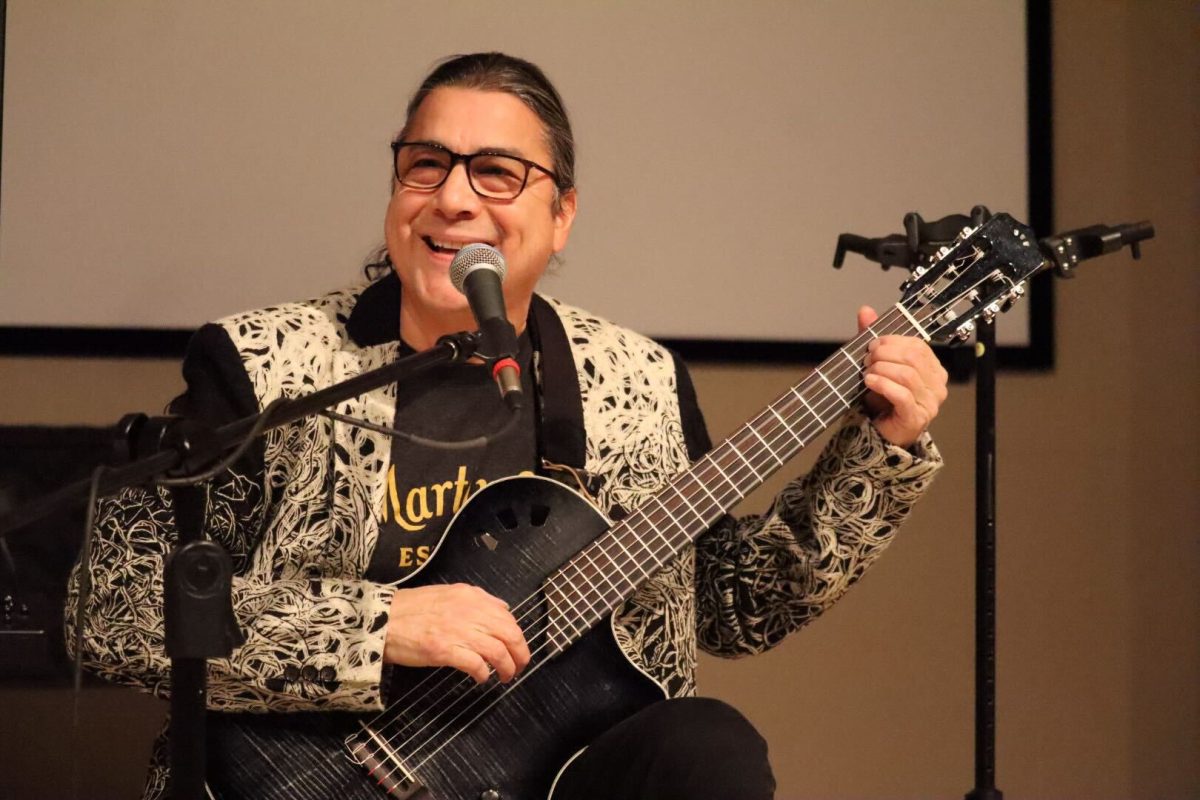The Texas State community celebrated Juneteenth with “Day of Reflection and Solidarity”, a live stream event that allowed faculty, staff and students to speak up and reflect on the racial challenges impacting the world, community and education.
The event streamed June 19 from 10 a.m. to 3 p.m. via Microsoft Teams.
University President Denise Trauth opened the event and shared her experience with witnessing injustices and inequality in the world. As for the university community, Trauth said Texas State is committed to not just non-racism but anti-racism and will combat it by sparking conversations that stimulate uncomfortable and courageous dialogue.
“I heard that our faculty, staff and students of color are exhausted, stressed, anxious. They are in pain,” Trauth said. “Many live in fear. Many feel powerless and some do not feel welcome at Texas State. I hear their pain, and I am moved to action by it.”
Trauth said she is committed to taking a stand with faculty, staff and students to make a difference at Texas State. She said she recognizes the blind spots she and the university have had in the past but will work to foster a campus culture in which students, faculty and staff of color have the same access to success, justice, safety and opportunity.
“Day of Reflection and Solidarity” was organized by Dr. Sherri Benn, assistant vice president for Student Affairs and director of Student Diversity and Inclusion. One of the main purposes of the event was to acknowledge the ability to work together to establish an inviting society and learning community.
Dr. Dwight Watson, Department of History associate professor, continued with the opening remarks by explaining the history of Juneteenth. Watson said Juneteenth was an event that opened the dream of freedom for the Black community.
Watson’s opening speech led to a personal reflection of his life and commentary on the recent Black Lives Matter protests following the death of George Floyd. He said the marches in the street have little to do with equality and more to do with a cry for justice.
“Didn’t he deserve a level of respect? Didn’t he deserve a level of decency? Moreover, didn’t he deserve a natural extension to his rights of life and liberty?,” Watson said of Floyd.
After Watson’s words, Benn asked for a moment of silence. Following, Benn introduced the faculty panel which included School of Criminal Justice associate professor, Dr. Scott Bowman; Director of African American Studies Program, Dr. Dwonna Goldstone; Assistant Professor of Curriculum and Instruction, Dr. Marcus Johnson; and Assistant Professor of Curriculum and Instruction, Dr. Maneka Deanna Brooks. The panel was moderated by Dr. Valerie Fleming, chair and professor in the Department of Communication Disorders.
Fleming opened the panel with a couple of quotes, one from James Baldwin, a writer and playwright during the American Civil Rights Movement.
“’To be a Negro in this country and to be relatively conscious is to be in a state of rage all the time. Part of the rage is this: It isn’t only what’s happening to you, but what’s happening all around you, and all of the time in the face of the most extraordinary in criminal indifference. Indifference of most white people in this country and their ignorance,’” Fleming quoted.
Bowman followed by deconstructing the myth of racial progress, the idea that society has progressed so much that the problems of racial injustice have been diminished.
“I think for years we’ve been having two separate conversations, white people saying ‘look at Oprah; look at Obama’, and Black people having a completely separate conversation. I am hoping that this time white people finally get it,” Goldstone said, following Bowman’s words.
Brooks continued the conversation discussing the history of America’s ties to racism and said those ties should be remembered and reckoned with. She said people have been socialized to believe talking about race is racist or that the only way to get rid of racism is to not talk about it.
The live stream paused around 11:55 a.m. for a reflective lunch break. During the break, a montage of films illustrating the experiences of Black people was displayed for viewers.
The event resumed around 12:45 p.m. with a student leader panel. The objective of the panel was for students to share their truth and stimulate conversation related to racial justice.
The panel was moderated by Diversity and Inclusion Coordinator, Dr. Dana Fitzpatrick. Student panelists included Dizzy Harrison, anthropology and international studies sophomore; Breana Miller, psychology senior; Corey Benbow, public administration graduate student; Cathie Jean, student affairs and higher education graduate student; and Tyreonta Norman, political science junior.
Fitzpatrick began the discussion by asking the students why they thought society was still struggling with race after so many years. Benbow said it is part of American culture to ignore things and move past them.
“Our people are oppressed, depressed and suppressed, and we are not moving past that in action,” Benbow said. “Everybody talks, [but] there’s not action surrounding it if we don’t address the issue head-on, if we don’t talk about race.”
When asked what tangible steps the university could take to make the campus a Black student-centered campus, Miller said the university could immediately invest in the Black and Latin American studies minors and invest in making the minors not only majors but a pre-requisite for getting a degree at Texas State.
Following the student leader panel was the trans-faith dialogue, a panel featuring leaders of the faith community who shared conversation on faith and hope.
The panel was moderated by Dr. Rebecca Rapheal, Department of Philosophy professor, and featured Rev. Dr. John Elford, senior pastor of the University United Methodist Church (UMC) Austin; Rev. Valerie Bridgemen, dean and vice president of Academic Affairs at Methodist Theological School in Ohio; Rabbi Nate DeGroot, Hazon Detroit associate director and spiritual and program director; and Dr. Najeeba Syeed, associate professor in Muslim and Interreligious Studies at Chicago Theological Seminary.
The panelists discussed how individuals can work within their communities and listen to the stories of people of color and believe in their truth.
“Don’t wait until a crisis to build relationships, whether it’s with different religious traditions or people of different ethnic or racial backgrounds,” Syeed said.
Closing remarks of the event were led by Provost and Vice President for Academic Affairs Gene Bourgeois. Bourgeois’ statements reflected on encouraging the community to assist in the collaboration of advancing diversity, supporting equity and facilitating inclusivity.
“We can’t fix this in one speech or in one day; we can’t fix this alone,” Bourgeois said. “But we can commit ourselves to real positive action. We can make sure there is space for voices of color to speak and to be heard. We can take bold steps; we can take real steps, and we can listen with open minds and open hearts.”
The event concluded with a reading of the poem “Let America Be America Again”.
For more information on “Day of Reflection and Solidarity” visit Texas State’s Student Diversity and Inclusion website.
Categories:
Texas State recognizes Juneteenth through ‘Day of Reflection and Solidarity’
June 19, 2020
(Front to back) TeraLynn Steele, Breana Miller and Najha Marshall hold their fists up, a gesture symbolic of unity and solidarity in black communities, while getting their photo taken, Tuesday, Jan. 21, 2020, at the 36th Annual MLK Commemoration Celebration in the LBJ Ballroom.
0
Donate to The University Star
Your donation will support the student journalists of Texas State University. Your contribution will allow us to purchase equipment and cover our annual website hosting costs.
More to Discover



